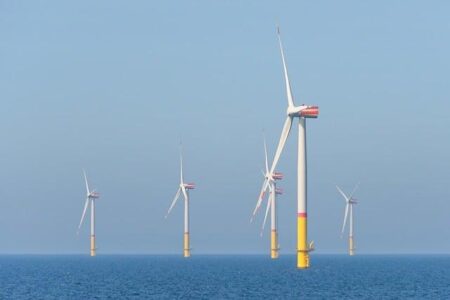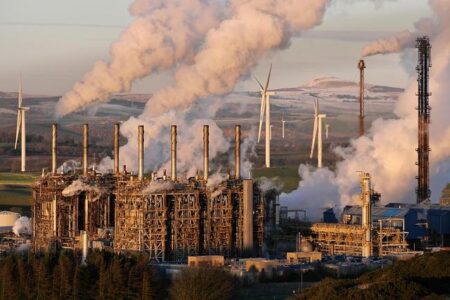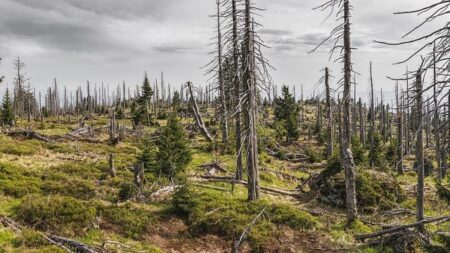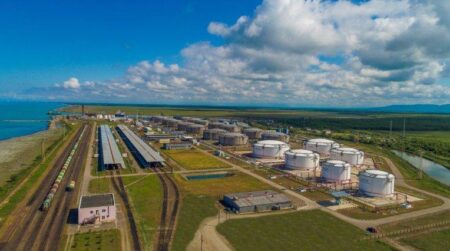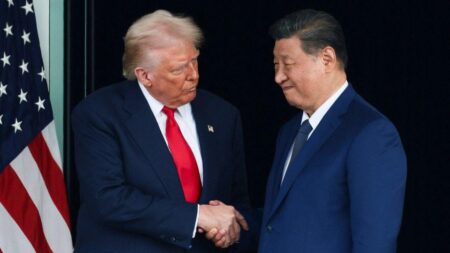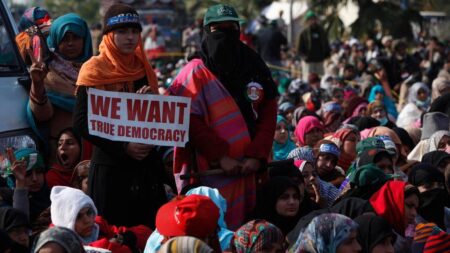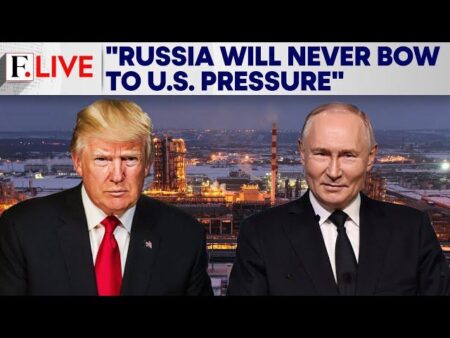Trump-era sanctions on Russian oil take effect today, sending shockwaves through global markets. India stands at a critical crossroads-juggling its official commitment to cut imports while grappling with soaring energy demands, paving the way for a complex and delicate journey ahead
Browsing: energy policy
Alaska’s oil production is set to soar by 13% next year, the Energy Information Administration reveals. This exciting boost comes from intensified drilling activities and increased output from key fields, signaling a powerful resurgence for the state’s energy industry
As fresh sanctions on Russian oil approach, India is gearing up for a bold pivot, preparing to curb its recent buying frenzy. This strategic shift could send ripples through global energy markets amid rising geopolitical tensions
China and the U.S., two of the world’s leading energy giants, are spearheading a global movement to transform the future of energy. Their policies and partnership will be pivotal in advancing climate goals and fast-tracking the transition to renewable sources
The UK and Australia are joining forces to ignite the next energy revolution, driving cutting-edge renewable innovations and building strong international partnerships to power a sustainable future, AFR reports
Bavarian Premier Markus Söder has reignited the nuclear debate with a bold call for Germany to reconsider its nuclear phase-out amid rising energy security concerns. This daring proposal challenges the country’s green energy goals, sparking a heated political battle
Germany has dramatically scaled back its planned expansion of gas-fired power plants in a bold move toward decarbonisation, Reuters reports. This strategic pivot aims to perfectly balance energy security with ambitious climate goals, all while investments in clean energy continue to soar
Hungarian Prime Minister Viktor Orbán has boldly announced that Hungary will stand against the EU’s planned phase-out of Russian energy, emphasizing deep concerns over energy security and the rising costs amid ongoing geopolitical tensions
Pennsylvania’s exit from the Regional Greenhouse Gas Initiative (RGGI) marks the end of its only major climate policy, raising serious concerns about the future of carbon reduction efforts as political winds shift, reports E&E News via POLITICO Pro
China’s meteoric rise as a solar power titan is revolutionizing the global energy landscape. Through bold investments and sharp strategies, Beijing isn’t just competing-it’s rewriting the rules, disrupting established energy giants, and reshaping markets and international relations like never before
Despite China’s bold push for green energy, coal still reigns as the dominant power source, exposing the complex and challenging reality behind its renewable ambitions. The nation’s “green revolution” remains tightly linked to fossil fuels, highlighting a delicate balance between progress and tradition
Former President Trump’s ambitious push to ramp up fossil fuel production is igniting intense battles with climate advocates, fueling a heated debate over America’s energy future as policymakers struggle to find the right balance between environmental protection and economic growth
The Georgian refinery’s recent move to accept Russian oil has sparked serious concerns over potential sanctions violations. Experts warn this decision could jeopardize Georgia’s relationships with Western allies, highlighting escalating geopolitical tensions
Japan’s Prime Minister has reportedly resisted U.S. calls to ban Russian energy imports, highlighting the nation’s focus on safeguarding its economic and energy security, according to Reuters sources. This move reflects Tokyo’s cautious and strategic stance amid global sanctions
Former US President Donald Trump revealed that Hungarian Prime Minister Viktor Orbán personally requested a special exemption from US sanctions on Russian oil-but the plea was ultimately rejected, reports The Kyiv Independent
Former U.S. President Donald Trump boldly claimed that India had agreed to halt its purchases of Russian oil. Yet, New Delhi swiftly shot down this assertion, insisting it has no knowledge of any such agreement-further fueling the heated tensions around the global energy trade
Brazil is rapidly expanding its liquefied natural gas (LNG) import infrastructure to meet soaring energy demands, the U.S. Energy Information Administration (EIA) reveals. These state-of-the-art terminals promise to boost supply diversity and fortify the nation’s energy security more than ever before
India’s BPCL is set to launch a spot crude oil tender designed to replace Russian supplies, a source told Reuters. This bold step underscores India’s determination to diversify its crude oil sources amid the shifting dynamics of the global energy market
Political turmoil in France is throwing a wrench into offshore wind projects, industry insiders reveal to DredgeWire. Regulatory hurdles and changing policies are fueling investor uncertainty, putting the country’s bold renewable energy goals at serious risk
The US is intensifying its pressure on Hungary to halt Russian oil imports, spotlighting rising tensions over energy connections amid the ongoing Ukraine conflict, Bloomberg reports. This move aims to tighten sanctions against Moscow and curb its influence




